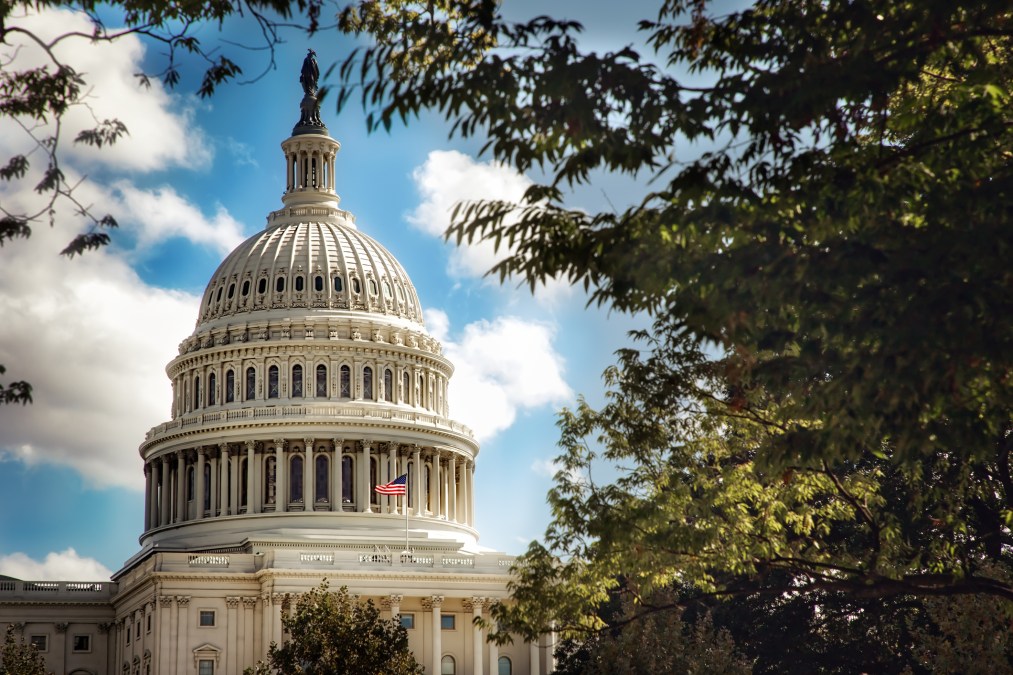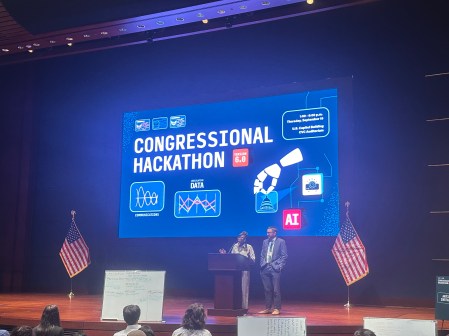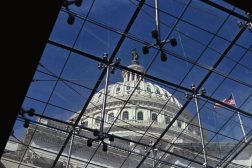Coronavirus pandemic amplifies urgency for a Congressional Digital Service

The coronavirus pandemic has made it obvious that the legislative branch is in dire need of Congressional Digital Service similar to the program in the executive branch, according to the tech policy fellowship group TechCongress.
Until lawmakers are willing to officially create such a team themselves, TechCongress wants to fill the gap with a fellowship. The group is recruiting a small tech team to send to Capitol Hill for eight months to help with Congress’ most pressing digital needs.
This fellowship cohort will start in June and focus on improving Congress’ technical infrastructure and remote digital tools, its ongoing gaps in cybersecurity, and the shortage of expertise to test and support larger scale modernization initiatives. The U.S. Digital Service (USDS), which operates from within the White House, provides similar expertise to federal civilian agencies.
TechCongress founder Travis Moore points in a blog post to the coronavirus as Congress’ Healthcare.gov moment. The 2013 botched rollout of the health insurance website was a major turning point for the federal government in realizing it didn’t have the institutional tech skills to provide 21st-century digital services to American citizens. Many from the team brought in to fix the broken website would go on to found the USDS.
“Today it’s clear that the continuity of our Legislative Branch is dependent on its technical infrastructure,” he writes. “Over a month since widespread shelter-in-place orders were announced, we’ve heard barely a peep from a Congressional Committee and have had only one single day of emergency voting in the House.”
Indeed, congressional leadership has struggled to adopt any remote technologies or processes for official business during the pandemic, despite the urging of some lawmakers. Just this week, long since Congress entered recess due to pandemic, House Majority Leader Rep. Steny Hoyer, D-Md., held his weekly meeting of House committee chairmen using a videoconference Congress is testing. Despite the successful test, Hoyer said lawmakers must still “reach a bipartisan agreement on changes to the rules of the House to allow for remote work during this pandemic.”
To be clear, Moore isn’t the only one with this idea. Lawmakers years ago had penned unsuccessful legislation that would launch a Congressional Digital Service. Other tech policy advocacy groups have championed the call as well. But there’s never been an urgency for it like there is now, Moore says.
“The needs for a Congressional Digital Service have never been urgent, or timely” until now, his post says. On top of that, “increasing funding for any part of Congress is extraordinarily hard, even when there is broad consensus on a proposed solution that has consistently been shown to save taxpayer money.”
There are also many great civil servants on Capitol Hill tackling the modernization of Congress — but they’re “putting out fires, adjusting to the day-to-day crises of helping an entire branch of government function in a fundamentally new and distanced context. They could use a few helping-hands,” Moore writes.
The fellowship isn’t meant to be a lasting effort. It’s a “one-time intervention,” Moore says. But like the team that fixed Healthcare.gov, he hopes the fellowship can serve as a “proof of concept for the long-standing proposal to build a Congressional Digital Service within Congress, and to build momentum for an increased investment in tech infrastructure on Capitol Hill.”
“Ultimately, Congress needs to solve its tech capacity challenges itself,” Moore says. “As a result, our fellowship will ramp up and shutter in 2020.”
The program will place fellows “among the top tech decision makers in the United States government at a time when technology is reshaping society in fundamental ways,” says the application page. “Even if you’ve never considered working in government, the program will allow you to make changes at the highest levels and at a scale unparalleled in the private or public sectors.”
Fellows will be paid stipends equivalent to tech team salaries in the executive branch, like USDS, 18F and the Presidential Innovation Fellows program.
Applications are being accepted through May 10.
TechCongress has a record for placing fellows in “the most influential offices in Congress on technology policy matters,” it claims. It has hosted 29 fellows since 2016 who have worked on passing the OPEN Government Data Act into law, aiding in the investigation into Cambridge Analytica’s data-sharing practices and determining that “the Russian government is targeting Members of Congress on their personal emails and devices,” the organization says.
TechCongress is a nonprofit associated with the Open Technology Institute at New America. It has received funding from a variety of investors, such as the Knight Foundation, the Democracy Fund and the Hewlett Foundation.






